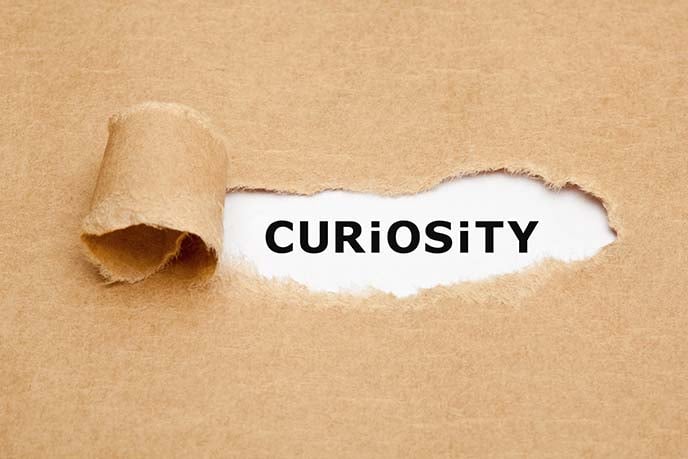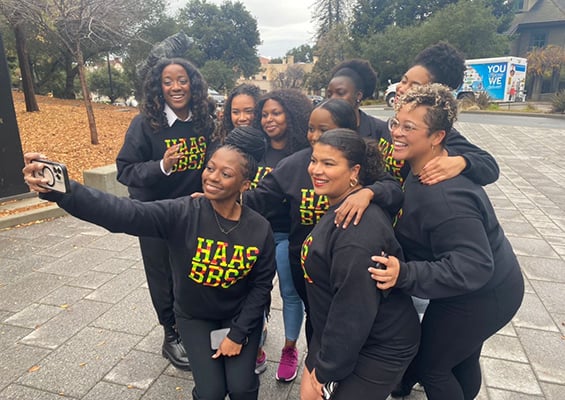What I love most about my work in the full-time Berkeley Haas MBA program is meeting with students who feel fired up about the possibilities for their career. Whether they have only just identified a field of interest or are in the process of evaluating multiple job offers, students bring their intellectual curiosity to our coaching sessions in ways that give us lots of possibilities to explore.
Sometimes, “lots” actually means “too many”. Over the years I have been coaching, students have articulated this in a host of ways, but all are variations on the same theme: “I have so many interests and need help narrowing them down, but I don’t want to close the door on any opportunities too soon!”
In this “analysis paralysis,” students will review tens (hundreds?) of job descriptions and industry reports, pack their calendars with coffee chats, and use their exceptional financial modeling skills to create the most elegant pros and cons lists you have ever seen.
It takes more than intellectual curiosity to move forward with career development.
Once exhaustion from this approach sets in, students are open to hearing what I am sharing with you in this post: It takes more than intellectual curiosity to move forward with career development. Why? Because intellectual curiosity is self-centered! Sure, it helps you discover and understand what things do and how those things work. In the end, however, it is only concerned with your own interests.
The missing element is the one that frames your search around finding meaning and purpose in your career: empathetic curiosity.

Empathetic curiosity focuses on how people feel, and it typically anchors on their sense of success or well-being.
Both types of curiosity—intellectual and empathetic—play crucial roles in career development. For example, imagine you are targeting jobs in product management because you love to build things and are fascinated by technology (intellectual curiosity) but you have not given any thought to how you want to support customers’ success or well-being, or even to how customers perceive these things (empathetic curiosity).
Suddenly, what sounds like your passion for tech could come off as a lack of compassion for people. After all, if you understand what a product manager does and how the job works, yet you fail to appreciate how that job affects the customer, then you risk wasting customer time and money, along with the resources of your business.
Conversely, if you do appreciate the way these customers see their own success and well-being, then you can develop a point of view about how you would support them if you had the product manager job. That insight makes for a winning pitch during a job search!
Let’s look at another example: investment banking. As an aspiring banker, you may love keeping up with financial markets, enjoy performing technical analyses, and feel thrilled at the prospect of doing deals that reshape industry. All of these are features of intellectual curiosity.
Beyond these features, you could also cultivate empathetic curiosity for your prospective clients: the CFOs and CEOs of major companies. How do they see their success and well-being? This could run the gamut from building a corporate empire, to financing the commercialization of life-saving products, to protecting employees from layoffs during an acquisition. Knowing this, you can connect your intellectual and empathetic curiosities in ways that show a managing director the kind of banker you aspire to be.
Intellectual curiosity helps you generate career possibilities; empathetic curiosity helps you narrow them down.
On a more macro level, intellectual curiosity helps you generate career possibilities whereas empathetic curiosity helps you narrow them down. Imagine you are a new MBA student declaring that you will target investment banking while keeping product management as a backup option (a not uncommon approach at Haas). While this may sound strategic to you, I would encourage you to reconcile how the success and well-being of your potential clients or customers across both domains support your own sense of success and well-being.
In other words, would you feel energized, inspired, satisfied, and paid well enough by supporting these clients or customers? If yes, can you explain why? If you can, then pursue these options. If not, reflect further or narrow down the list by eliminating the job that does not contribute to your success and well-being.
Where your sense of success and well-being is positively related to your customers’ sense of success and well-being, will find meaning, purpose and other such states of mind emerging in your work.
In the meantime, use those research reports and coffee chats to exercise your empathetic curiosity. See where it takes you!
Curious about where an MBA might take you in your search for meaningful work? Compare Berkeley MBA programs to begin finding out.








